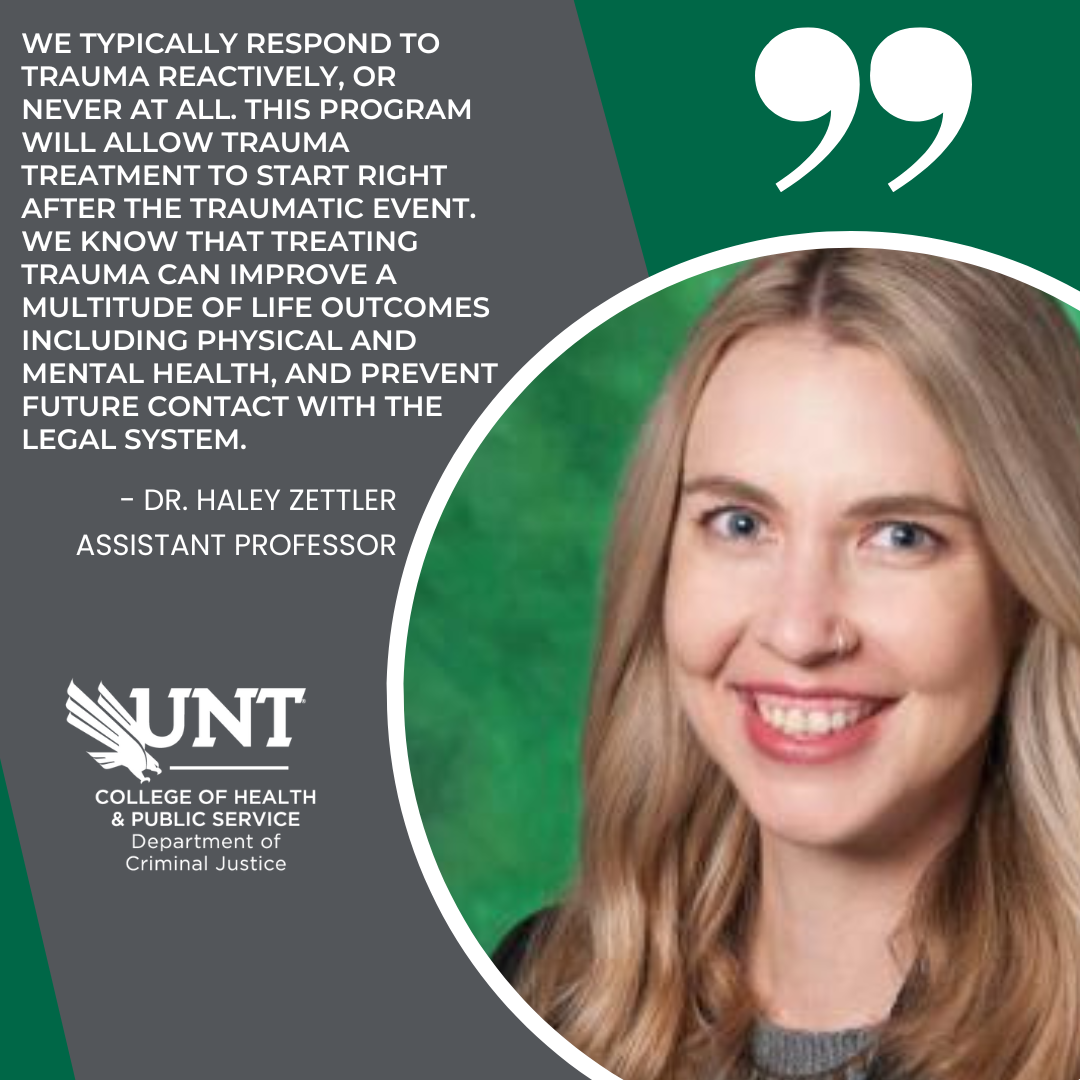Dr. Haley Zettler has received a portion of a $350,000 grant funded by the Urban Child Institute to study the effectiveness of mental health services on the children.
 DENTON (UNT), Texas – Le Bonheur Children’s Hospital, a level-one trauma center, serves a predominantly low-income region that covers parts of Tennessee, Arkansas and Mississippi, and has seen an uptick in traumatic injuries among children during the pandemic. The four main types of traumas their doctors are seeing are burns, falls, injuries from vehicle accidents and non-fatal gunshot wounds. They’ve also seen an increase in trauma symptoms among these patients. As such, they’ve implemented a program where the children – who usually have little to no access to mental health resources – receive counseling while at the hospital and are provided the opportunity for a set number of no-cost follow-up services.
DENTON (UNT), Texas – Le Bonheur Children’s Hospital, a level-one trauma center, serves a predominantly low-income region that covers parts of Tennessee, Arkansas and Mississippi, and has seen an uptick in traumatic injuries among children during the pandemic. The four main types of traumas their doctors are seeing are burns, falls, injuries from vehicle accidents and non-fatal gunshot wounds. They’ve also seen an increase in trauma symptoms among these patients. As such, they’ve implemented a program where the children – who usually have little to no access to mental health resources – receive counseling while at the hospital and are provided the opportunity for a set number of no-cost follow-up services.
Dr. Haley Zettler, assistant professor in the University of North Texas College of Health and Public Service Department of Criminal Justice, has received $18,000 from the total grant and is working with Dr. Eraina Schauss, associate professor of clinical mental health counseling at The University of Memphis and grant principal investigator, and Dr. Regan Williams, medical director of trauma services at Le Bonheur. With her portion of the funding, she will evaluate the mental health services to see if they help with symptoms associated with Post Traumatic Stress Disorder, anxiety, depression and other mental effects, as well as whether the patients continue services after leaving the hospital.
“It is important that we treat trauma holistically, as it effects both the body and mind,” said Dr. Zettler. “We typically respond to trauma reactively, or never at all. This program will allow trauma treatment to start right after the traumatic event. We know that treating trauma can improve a multitude of life outcomes including physical and mental health, and prevent future contact with the legal system.”
Dr. Zettler says she will visit the hospital periodically beginning in July and will analyze data to see if the services reduce trauma symptoms via assessments the patients are given, along with conducting surveys about openness to continue treatment and how effective they/their caretakers feel it has been. She hopes to finalize her evaluation by July 2023.

